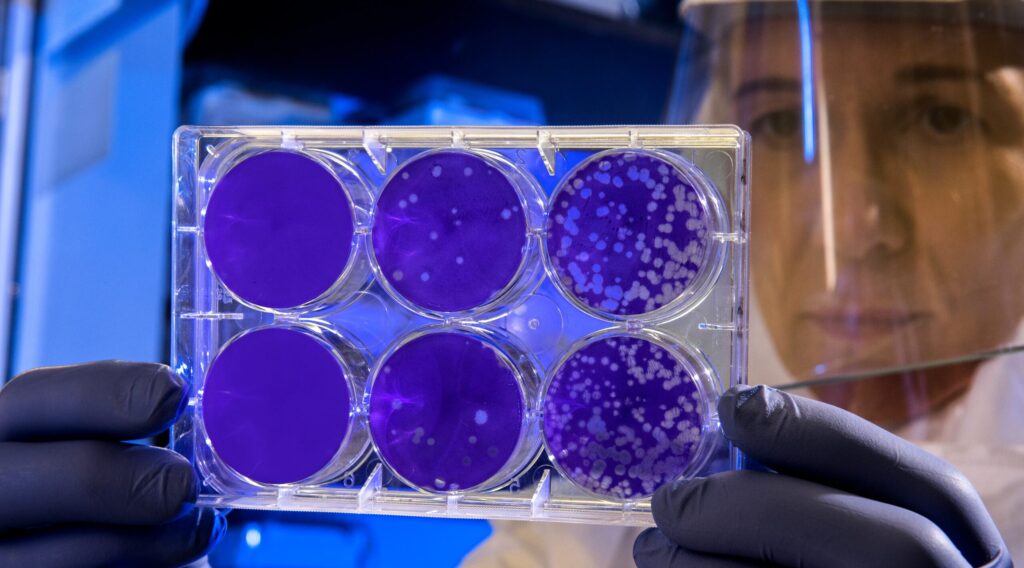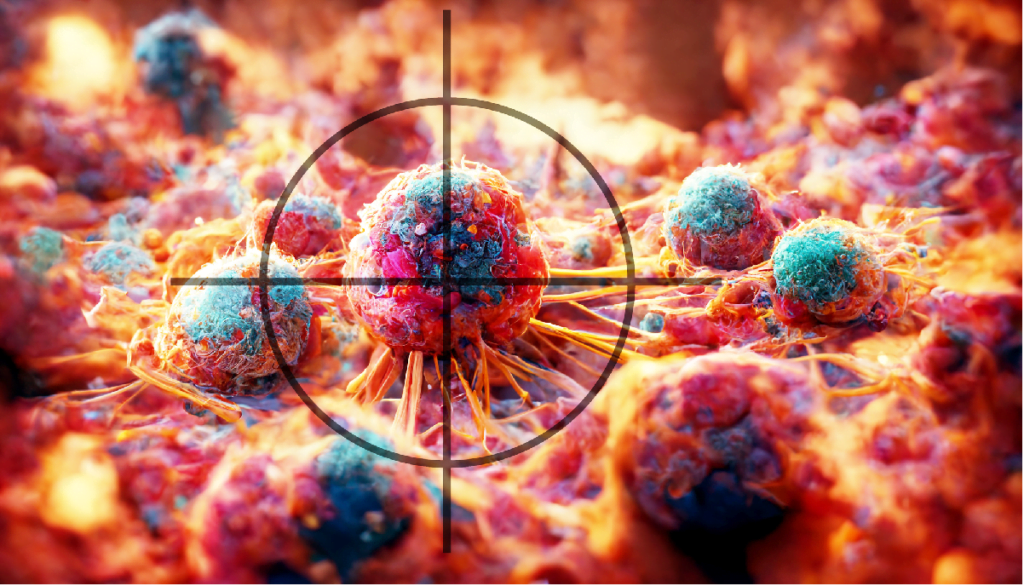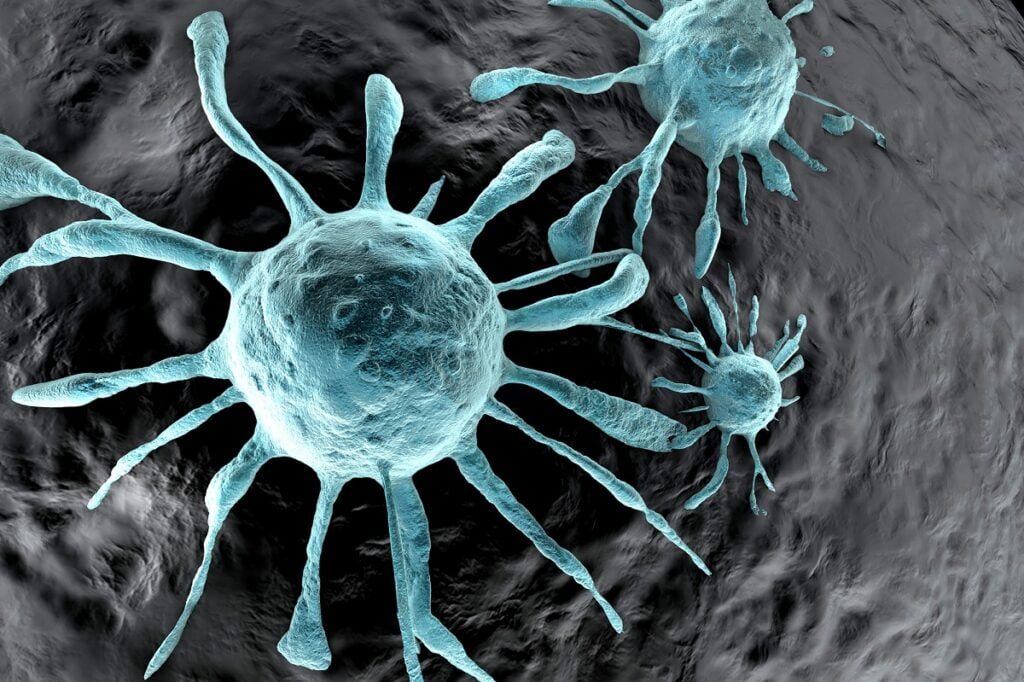Receiving a cancer diagnosis is life-changing, especially for those grappling with stage four cancer – when the tumors have spread to other parts of the body.
An Israeli biotechnology startup says it has developed a way to turn the disease into a chronic disorder, using novel technology to target solid tumors with heat in order to destroy them.
The New Phase platform, called the Sarah Nanotechnology System, builds on existing research that found that cancer tissue is extremely sensitive to heat and that the tumors need a variety of different nutrients, especially glucose, to grow. The company then devised a way to develop nanoparticles that heat up to around 50 degrees Celsius, which when introduced to the cancer tissue causes it to die off.

The nanoparticles are introduced into the patient’s body via intravenous injection (IV).
The nanoparticles travel through the bloodstream and access the tumors by entering through thin blood vessels, known as capillaries. The cancer cells grow these capillaries around themselves in order to draw the oxygen and nutrients from the body that they need to reproduce.
When these blood vessels are not fully developed, the nanoparticles can use them to amass on the tissues around the cancer cells.
The nanoparticles themselves are made from a phase change material – a wax-like material that absorbs more energy and can maintain the same predefined temperature of 40-50 degrees Celsius to heat the tumors. The nanoparticles get this energy from an electromagnetic field that heats up the nanoparticles to the pre-defined temperature of 50 C.
To keep the patient safe during each treatment session, which lasts for approximately 30 minutes, they are also placed under a cooling blanket, accompanied by constant monitoring using temperature sensors to ensure a regulated environment.

During this time, the nanoparticles accumulate around the cancer cells, subsequently heating and eliminating the malignant tissue while preserving surrounding healthy tissue.
“We heat up the tissue to 50 degrees Celsius [and] no damage will happen to the normal cells and they will survive because they have the ability to survive even 55 and 60 degrees,” Ofer Shalev, CEO and founder member of New Phase, tells NoCamels.
He stresses that it is important to understand that this procedure doesn’t aim to eradicate cancer. Instead, the treatment transitions the disease from a terminal condition to a chronic one.
“[We aim to] reduce the metastatic mass and that’s how you can prolong the life of a patient,” Shalev says.
The idea for these nanoparticles came about 13 years ago, according to Shalev, after the mother of New Phase co-founder Dr. Rafi Hoff was diagnosed with lung cancer.
The two, who had worked together on a previous medtech company, united to develop a new tool to tackle the disease. Hoff’s mother was named Sarah, which later became the title of the treatment they developed.
The company is privately funded and has raised around $35 million without backing from external venture capitalists, and only from private investors and family, although Shalev says they anticipate such investment from VCs or strategic investors in the near future.
Sign up for our free weekly newsletter
SubscribeWhile other biotech firms have developed treatments based on changing the temperature of a tumor, most notably freezing them, Shalev believes that the nanoparticle therapy they have devised is a game changer as it offers systemic and not local treatment.
“I do think that it’s going to be a breakthrough solution,” he tells NoCamels.

The system has almost completed a phase one clinical trial at Rabin Medical Center (Beilinson Hospital) in central Israel. The trial involved 17 patients with stage four cancer of different forms, who had exhausted all other forms of treatment.
The study, which was approved by the Israeli Ministry of Health, focused on safety and toxicity.
As the treatment is not a one-time solution, patients underwent four or more sessions, with some even being treated for six to 12 months.
While the treatment was administered to patients with various forms of cancer, such as liver, cervical and colon, the company decided to not deal with brain tumors as the brain reacts differently to heat than other parts of the body.
Shalev explains that while the heat treatment kills off cancer cells, it does not completely eradicate the solid tumors. The goal, he reiterates, is to make cancer into a chronic disease and not a fatal one, as was achieved with AIDS in the late 1990s.
The trial found that the treatment killed enough of the cancer in seven of the patients for them to again be eligible for other therapies.

“They were designated after the treatment as [having a] stable disease,” Shalev says.
Sarah Nanoparticles is already IDE-approved by the US Food and Drug Administration (FDA), which allows the company to conduct clinical trials in American institutions. In fact, New Phase is currently in contact with hospitals in the United States about starting the feasibility study there.
New Phase is working to get approval in Israel for the next stage, which is a pivotal trial that will be conducted in multiple hospitals.
“We are not going to cure cancer,” Shalev says.
“We are going to change cancer into a manageable or chronic disease that people can live with, without side effects.”
Related posts

Israeli Medical Technologies That Could Change The World

Harnessing Our Own Bodies For Side Effect-Free Weight Loss

Missing Protein Could Unlock Treatment For Aggressive Lung Cancer




Facebook comments